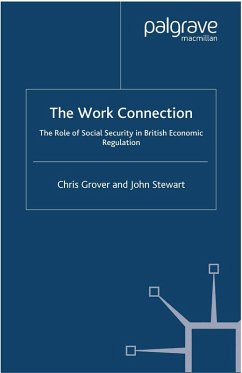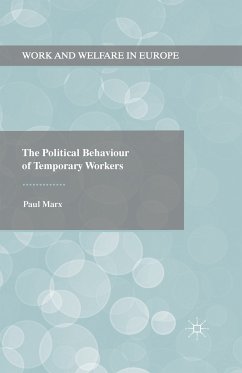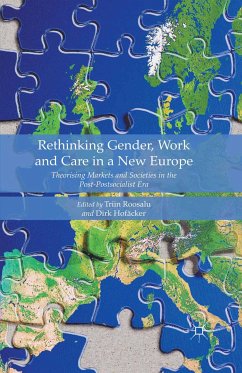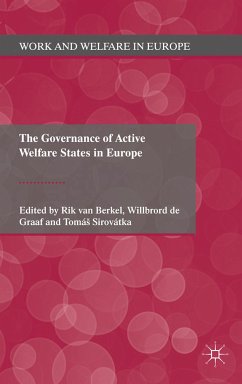
The Work Connection (eBook, PDF)
The Role of Social Security in British Economic Regulation
Versandkostenfrei!
Sofort per Download lieferbar
72,95 €
inkl. MwSt.
Weitere Ausgaben:

PAYBACK Punkte
36 °P sammeln!
The authors use regulation to explain the antecedents to current welfare developments in Britain. From discussion of the 'Speenhamland System', the struggle for Family Allowance and a National Minimum Wage, they show how first a Conservative government in the 1970s, and more recently 'New Labour', have used in-work benefits so that today they have become the preferred instrument of intervention in the labour market for setting wages. The authors discuss the ways in which these measures - the new deals for lone parents and young people and the working family tax credit - address issues of child...
The authors use regulation to explain the antecedents to current welfare developments in Britain. From discussion of the 'Speenhamland System', the struggle for Family Allowance and a National Minimum Wage, they show how first a Conservative government in the 1970s, and more recently 'New Labour', have used in-work benefits so that today they have become the preferred instrument of intervention in the labour market for setting wages. The authors discuss the ways in which these measures - the new deals for lone parents and young people and the working family tax credit - address issues of child poverty and the adequacy of incomes, and how far they are disciplining devices to encourage a new moral order, supportive of family life.
Dieser Download kann aus rechtlichen Gründen nur mit Rechnungsadresse in A, B, BG, CY, CZ, D, DK, EW, E, FIN, F, GR, HR, H, IRL, I, LT, L, LR, M, NL, PL, P, R, S, SLO, SK ausgeliefert werden.












